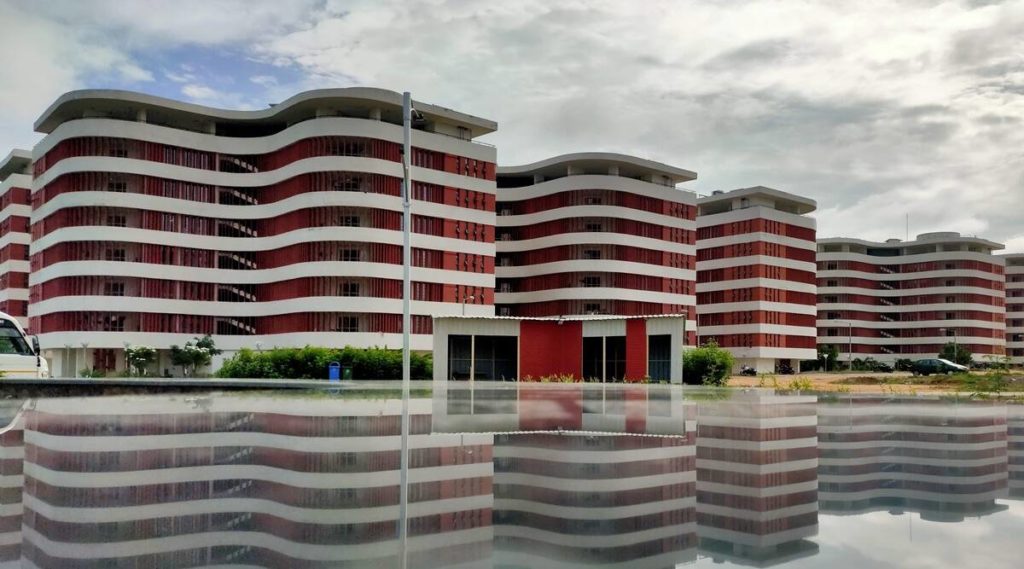The Phase-2 of expansive construction and development activities at the Indian Institute of Technology-Hyderabad campus will be completed by December 2022, the director of the institute, Prof BS Murthy, said on Tuesday.
“For a second-generation IIT, we have strived for a futuristic campus. We hope to have Prime Minister Narendra Modi during the inauguration of the campus in December next year. A lot of academic developments are linked to the growth of the campus and we hope to be future-ready,” Murthy saids.
Among several key initiatives in the pipeline, Prof Murthy hoped to launch driverless vehicles on campus in the next six months. These vehicles, developed indigenously using autonomous navigation systems, are currently being tested at different weather and road conditions simulated artificially. “The vehicles are ready. Before you use them, we want to be fully confident and hence the tests,” he said.
The campus houses nearly 3,000 students and each hostel room on campus is equipped with technology to maintain a mean radiant temperature of 26 degree Celsius even in peak summer without the use of air conditioners, the director said.
Sharing the institute’s vision for the next two years, ahead of throwing open the campus for offline mode of education from January 3, Prof Murthy said the IIT-H will soon offer a semester break with credit points in the first year of the engineering course itself if a student has an entrepreneurial idea he/she wishes to pursue. The institute is also mulling possible multi-exit programmes, mentoring other engineering institutions, and also bringing a change in the lives of people in nearby villages through deep-tech innovations, he said. The institute is also introducing a series of online and industry-oriented MTech programs in the coming year.
The second phase of construction at the campus was taken up in August 2019. At present, work is on to construct multiple buildings including several lecture hall complexes, a knowledge centre, a sports complex, indoor stadia, innovation and research parks, among others.
